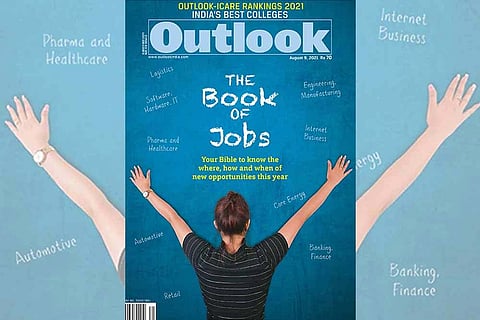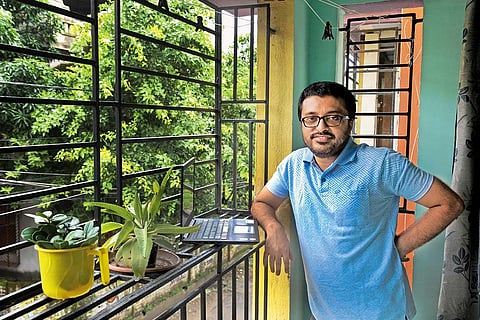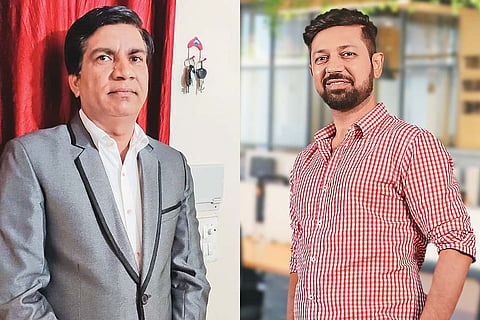Every crisis spawns opportunities, but in mysterious and bizarre ways. As thousands of employers let go of millions of employees, and slashed the salaries of another several millions, every family was inflicted with the economic impact of Covid-19. As desperate bread-winners struggled to make ends meet, many of them took the most unusual and unintended route. They turned into India’s new and unlikely entrepreneurs. They became the masters and mistresses of their destinies.
Atmanirbhar Bharat: Those Who Made It On Their Own
There’s an entrepreneurial surge in the wake of the pandemic-induced job crisis as former employees chart new paths to strike out on their own
Some of the frantic, anxious and distressed individuals, who faced a near-hopeless future, took a deep dive into the stormy, erratic and wild sea of entrepreneurship. Others decided to leave the wretched and desolate corporate rat race, and pursue secret passions that were lost and forgotten in the daily and never-ending humdrum of earning enough for their families. Many donned philanthropic avatars, and a few opted for the typical WFH (work-from-home) consultancies.
Latest figures prove that self-employment has emerged as the new game in town. Between April 2020 and February 2021, at least 138,051 new companies were registered in the country. To give an idea of what this implies, the number of new corporate entities set up in the April-June 2021 period was 36,191, or a jump of more than 90 per cent compared to the same quarter in the previous year. And these are the statistics only for the formal and organised sector.
Experts contend that the frenzy to start own-businesses may be more expansive and dramatic in the informal sector. The reason: it is more decimated and destroyed by the pandemic. Vast swathes of migrant labourers were uprooted as their employers went caput. Although many are back, there are no numbers to show the extent of the impact. Job losses, deaths of earning members, salary cuts and rising debts and health expenses forced more people to chalk out new paths.

A job fair in Mumbai
Take the case of 47-year-old Turni Dhar from Calcutta. She worked as the national sales head of Gusto Imports, which dealt in imported wines. As with scores of other employees, she was forced to take a salary cut due to the pandemic. “My team was trimmed and we were morally down. It was difficult to generate business even after the lockdowns,” says Turni. “I had to think of an alternative.” What can be better in such circumstances than to pursue an obsession?
Years ago, in 2014, when she shifted from Mumbai to Calcutta, she carried with her a wish and hope in the heart, which remained alive. Even as Turni was intoxicated with her corporate job, and she got consumers to sway and float on wines, she constantly dreamt of starting a home care for senior citizens. In July 2020, the aspiration turned into a reality, and got a name too—Dependablez. She joined hands with two others—Swarnaditya Upal Das and Joyee Barik.

Like Turni, both Swarnaditya and Joyee faced much financial stress as their respective restaurant and wedding businesses floundered. The trio’s new business journey was a low-key affair. In the beginning, the new venture supplied cooked food to Covid patients as well as senior citizens in the city. The kitchen was run by one of Turni’s family friends, and Dependablez helped to expand the services to new localities and areas in Calcutta.

Co-founder, Nagorik.net
Since the focus was on senior citizens, the trio developed innovative packages for them. For example, they included dependable and quality nurses and attendants for Covid and non-Covid patients. The subscription model provided escort services to the older people to visit doctors, get vaccination, and do chores such as bank and insurance work, grocery shopping and withdrawal of pensions. Dependablez is now spreading its wings to other parts of West Bengal.
When 39-year-old Pratik Bandopadhyay, head of the sports desk at the Times of India’s Calcutta edition, was asked by the management to pinpoint the worst performer in his team who could be retrenched, he gave his own name. He resigned in protest, and became the talk of the town in the journalistic circles of Calcutta and other cities. Along with two friends, a fellow journalist and a Switzerland-based financial consultant, he launched a news-and-opinion website, Nagorik.net.
Obviously, the Bengali website hasn’t monetised yet, although it has drawn readers for its varied and insightful content. “The website hasn’t entered the revenue-earning stage. Right now, we wish to build a strong readership,” says Pratik. “The next step will be to generate revenues.” Pratik augments his individual income through freelance work and translations, and claims he is still happier than before. And he has penned his first Bengali novel, which went to the press recently.

“Writing on sports was a compromise for me, and I was stuck in it after I opted for it at the beginning of my career. But my first love was to write on socio-political issues, and literature,” he says. Pratik knew there was not much money in novels, and if he wrote on political matters, there would be both external pressures, and internal nudging from the management and owners. Thus, he refrained from both. Today, his pen is deeply dipped in both through Nagorik.net and novels.
What is important is that despite a nine-year-old daughter, and the discomfort of an unstable income, he was mentally prepared for the challenges. Once the fixed salary was gone, it wasn’t a tough call. In addition, his wife, who is a government employee and enjoys a regular income, endorsed his idea to pursue other loves. Inevitably, an individual who goes down the passionate road needs to get the nod and support of close ones. It is a huge encouragement.
The zeal to do something worthwhile, either for oneself or society, isn’t always embedded in an external goal—to start a home care or write a novel. It can sometimes stem from a habitual liking—for example, for food. Shoib Bashir from Kashmir’s Bandipora region loves fish. After all, the area is located on the banks of Asia’s largest freshwater lake, Wular. He had an extraordinary appetite for fish cooked in the traditional style, in locally made clay pots (daeghul), which had become extinct.

Founder, Wular Fish for All
After his consultancy work took a back seat, Bashir went in search of the clay pots that are used to cook Kashmiri fish delicacies, which have a typical taste and feel. He met the potters and was dismayed that they had stopped making the pots due to a lack of demand. Fortunately, one of them had an inventory of 100 pots. Bashir bought them all, and asked the potter to make more. In April this year, he began to cook and home-deliver the fish to eager, but small numbers of, buyers.
Bashir hasn’t taken a day’s break in the past few months. He takes 15-20 orders daily for recipes that include ingredients like nadru (lotus stem), and slices and crinkly leaves of haak (collard greens). Kashmiris living abroad, too, have begun to order the fish. “Once we delivered it to a family in Srinagar, and were told they hadn’t placed the order. We informed the parents that their son had, and from the US. They were so happy,” says Bashir.
Happiness, however, can come in myriad forms, especially during a crisis. Rahul Kumar, a 28-year-old from Jharkhand, found it in philanthropy. After a two-year intensive course in fashion and retail management, he joined a footwear design institute in 2019. The company made leather accessories like wallets and exported them to 8-10 countries. However, the virus put a halt to the supply of raw materials from China. Like many others, Rahul lost his job.
“My father is a farmer, who found it difficult to pay for my education. I didn’t want to put more financial pressure on him, and shifted from the city to my village,” says Rahul. When he saw a few poor kids playing in the streets, he found his calling. He decided to run classes from them, as they had left school due to lack of money and didn’t have mobiles to access online classes. His current crop of 30-35 students includes several Adivasis, and children from adjoining villages.
“It’s not only the question of my future, but also that of these children, who are affected by the Covid crisis. I want to ensure that we spend our time in a constructive manner despite the depressing times,” says Rahul.
***

Parvender Singh (Left) Direct seller, Bulandshahr; Sujit Jain CMD, Netsurf Communications
Solace In Direct Selling
A business model that finds traction during the pandemic is direct selling, which works through social networks, meeting new people, guest seminars and training. “The industry has performed better than others as some players launched the ‘online direct selling’ model in time, with rising demand for healthcare products,” says Netsurf Communications CMD Sujit Jain. “The sector offers an income opportunity to thousands of unemployed migrants.” The annual turnover was Rs 18,144 crore in 2019, and is expected to grow to Rs 65,000 crore by 2025. India is ranked sixth in terms of the number of direct sellers. Netsurf Network grew by 55 per cent in the last financial year, and added 350,000 new direct sellers. The company offers products across categories such as organic farming, health and wellness, home care, personal care and colour cosmetics.
Parvender Singh from Bulandshahr, UP, says his work journey went through difficulties until he found solace in direct selling. He now earns Rs 20,000 a month. “I work as per my convenience to push sales. My stint as an employee wasn’t as satisfying as my current one as an entrepreneur. The perks may be less, but there is more freedom,” says Parvender, who is an electrical engineer.
(This appeared in the print edition as "The New Masters of Their Own Dreams")
(With inputs from Lachmi Deb Roy, Naseer Ganai in Srinagar, Snigdhendu Bhattacharya in Calcutta and Navin Kumar Mishra in Ranchi)